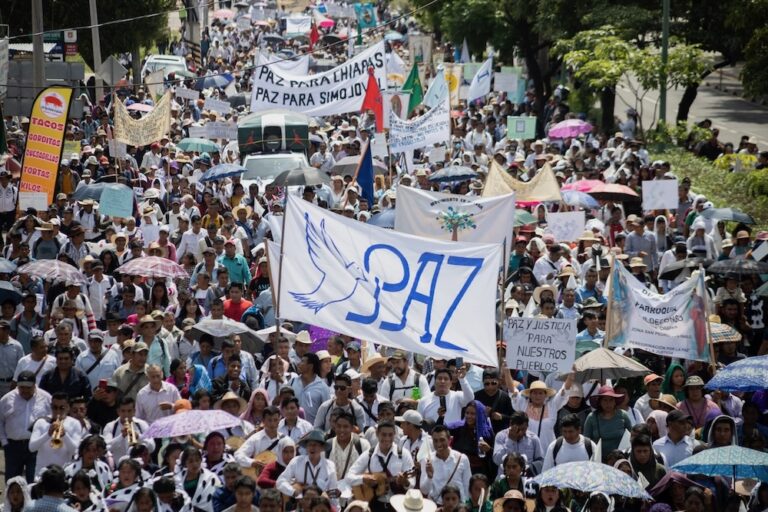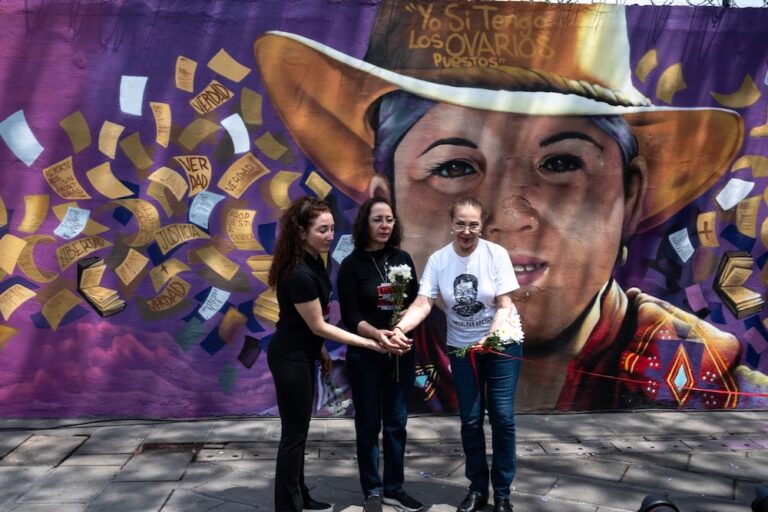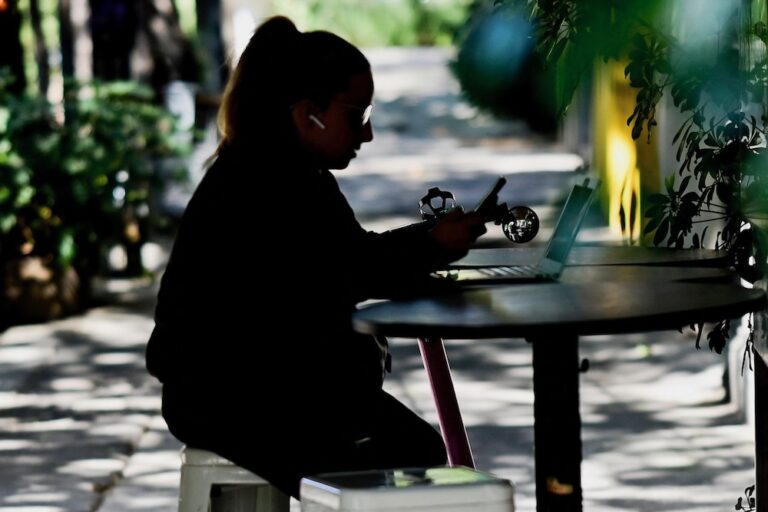The groups agreed there is a need for freedom of expression and journalists' organisations to continue and add to measures that promote and support the right of journalists and media outlets to carry out their work.
(CENCOS/IFEX) – Mexico City, 20 September 2010 – On 9 and 10 September 2010, international and Mexican freedom of expression organisations met in Mexico City to share experiences and knowledge regarding security practices for journalists. Possible opportunities for long-term collaboration on protective measures to address the security needs of Mexican journalists were also explored.
The seminar entitled “Security, protection and freedom of expression in Mexico”, organised by International Media Support, the Open Society Institute and the Centro Nacional de Comunicación Social (CENCOS), was held within the framework of a series of actions that several Mexican and international non-governmental organisations are carrying out in order to demand that the Mexican government fulfill its obligations to prevent, investigate and punish freedom of expression violations involving journalists and media outlets.
Mexico is considered one of the most dangerous countries in which to practice journalism, and the measures implemented by the government have proven insufficient in confronting this serious problem. As such, the level of insecurity for journalists in Mexico has been increasing and the government’s response has provided few and poor results. The government is also lacking a comprehensive vision that recognises the differing impacts for men and women.
Faced with the insufficient response from the government, the organisations in attendance at the seminar highlighted the need to strengthen their work in supporting, encouraging and advocating on urgent public agenda issues, with the objective of ensuring respect for journalism and freedom of expression in Mexico. The topics covered included: a call for the government to combat impunity by providing adequate resources and authority to the Special Prosecutor and by making freedom of expression crimes a federal offence; encouraging the effective implementation of recommendations issued in the last few years by international human rights organisations, such as those that resulted from a recent joint visit by the rapporteurs for freedom of expression of both the Organisation of American States (OAS) and the United Nations (UN); promoting the creation of a national system specialising in the protection of journalists; striving for legislation that ensures plurality and diversity in audiovisual media outlets; promoting a multi-faceted incorporation of gender awareness in the development of protection policies for journalists; and supporting new initiatives geared towards security.
The organisations also agreed that the national and international community must continue to pressure the Mexican government to assume its responsibilities. However, confronted with the lack of guarantees for ensuring the free flow of information, an urgent need for freedom of expression and journalists’ organisations, as well as media outlets and journalists themselves, to adopt alternative protective measures was identified. This includes taking into account the context and level of risk involved in journalism work; adopting adequate preventative measures for covering stories in high risk areas; promoting training of journalists and media outlets to improve the quality of journalistic work; and considering the professional and psychological needs of victims of attacks. This does not absolve the authorities of their duty to fulfill their responsibilities.
Also addressed was the need for freedom of expression groups and journalists’ organisations to continue contributing to and adding to measures that support the right of journalists and media outlets, including community-based media outlets, to carry out their work. The opportunity to include key actors such as academics and citizens in general was emphasised as well.
Casa de los Derechos de Periodistas
Comunicación e Información para la Mujer (CIMAC)
International Media Support (IMS)
Programa Prensa y Democracia de la Universidad Iberoamericana (PRENDE / UIA)
Red de Periodistas Sociales “Periodistas de a Pie”
Rory Peck Trust
Sindicato Independiente de Trabajadores de La Jornada (Sitrajor)
Sindicato Nacional de Redactores de la Prensa (SNRP)


